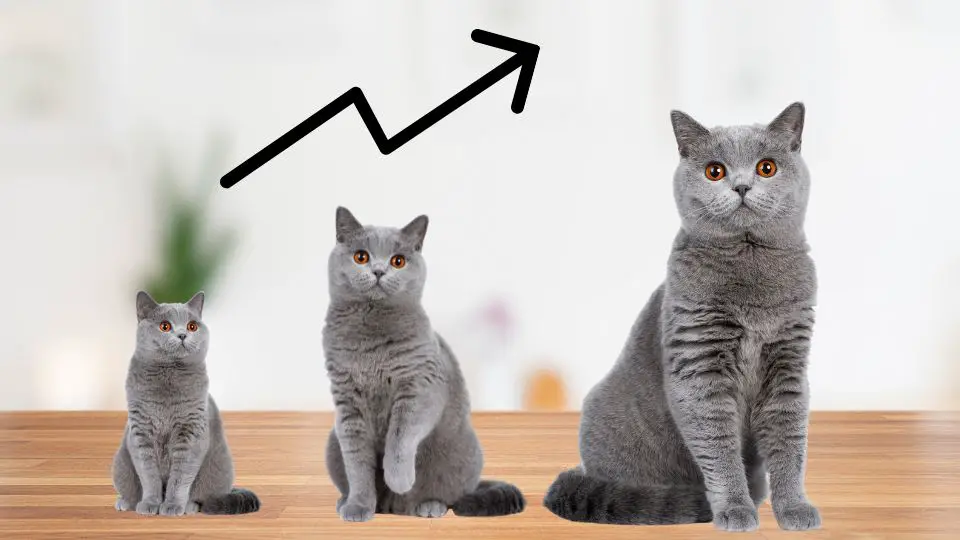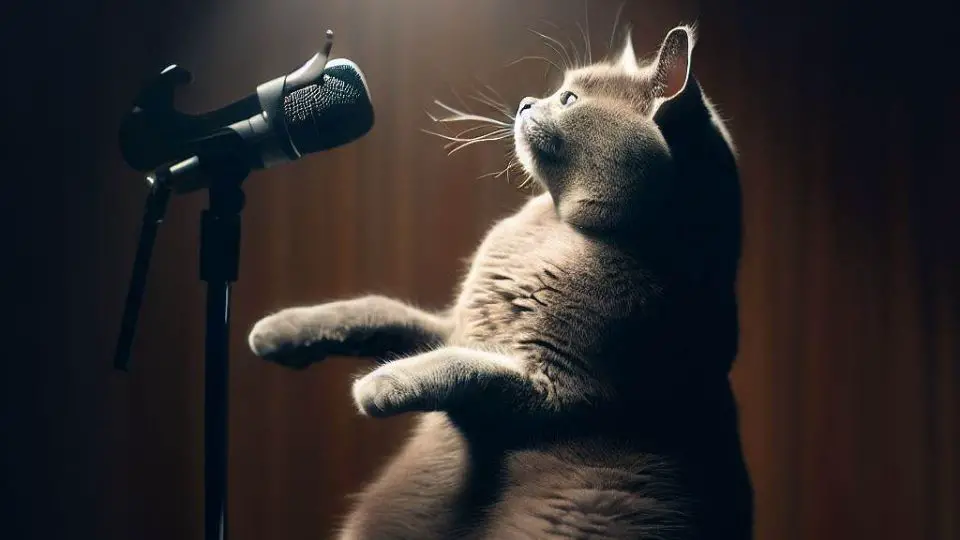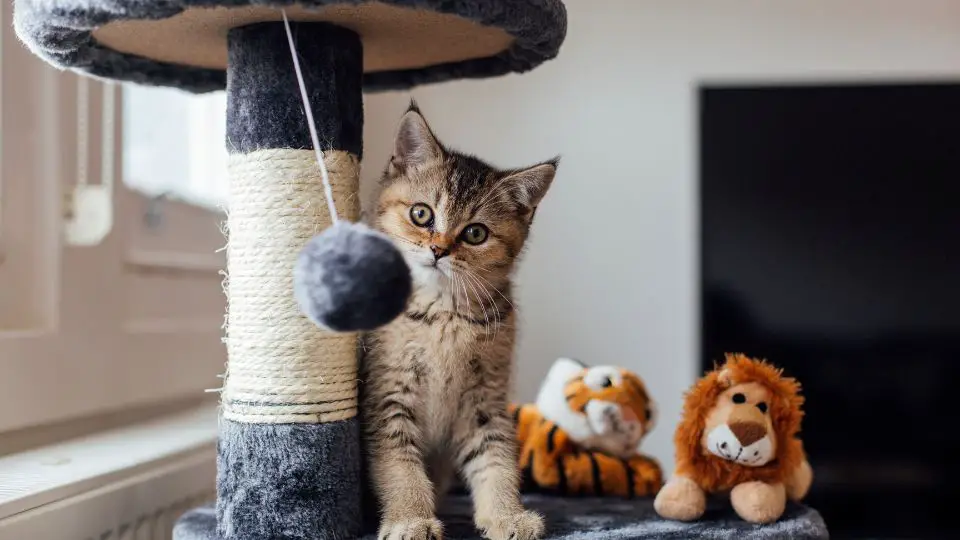As a cat owner, it can be concerning when your furry friend suddenly stops eating or loses their appetite. There are many reasons why a cat may not be eating, and it’s important to identify the cause and seek veterinary care if necessary.
In this article, we will explore 10 common reasons why your cat may not be eating and what you can do to help them regain their appetite.
Dental problems
Dental problems are common among cats, and they can cause a range of issues from mild discomfort to serious health problems. Poor dental health can lead to problems with eating and drinking, as well as systemic infections that can impact other parts of the body. British Shorthair cats are particularly prone to dental issues, so you should be aware of the signs and symptoms, as well as preventive measures that can be taken.
The primary cause of dental problems in cats is poor dental hygiene, which can lead to the buildup of bacteria and tartar on the teeth and gums. Other factors that can contribute to dental problems include genetics, diet, and underlying health conditions such as feline immunodeficiency virus (FIV) and feline leukemia virus (FeLV).
The signs and symptoms of dental problems in cats can vary depending on the severity and type of problem. Common signs include bad breath, drooling, decreased appetite, weight loss, and difficulty eating or chewing. Other symptoms can include bleeding gums, loose teeth, and swelling or inflammation of the gums.
Illness
llness is one of the most common reasons why cats stop eating. In fact, it is a natural survival mechanism for cats to stop eating when they feel unwell. As a responsible cat owner, it is essential to recognize the signs and symptoms of an ill cat that is not eating and seek veterinary care as soon as possible.
Here are some common illnesses that can cause a cat to stop eating:
- Upper Respiratory Infections (URI): URI is a common cause of illness in cats, especially in young kittens. The infection can cause a stuffy or runny nose, sore throat, and sneezing. The associated symptoms can make it difficult for the cat to smell or taste food, leading to a loss of appetite.
- Gastrointestinal Issues: Gastrointestinal issues such as inflammatory bowel disease, gastritis, and pancreatitis can cause nausea, vomiting, and diarrhea, leading to a loss of appetite.
- Kidney Disease: Kidney disease is a common ailment among older cats. As the kidneys fail, waste products build up in the bloodstream, causing a loss of appetite and weight loss.
- Liver Disease: Liver disease can lead to a buildup of toxins in the bloodstream, causing a loss of appetite and lethargy.
- Cancer: Some cancers can cause a cat to lose its appetite. Tumors in the digestive tract can cause pain and discomfort, while tumors in other parts of the body can cause a general feeling of illness.
- Hyperthyroidism: Hyperthyroidism is a condition in which the thyroid gland produces too much hormone, leading to weight loss, vomiting, and a loss of appetite.
- Diabetes: Diabetes can cause a cat to lose its appetite, and the condition can progress rapidly if left untreated.
- Feline Infectious Peritonitis (FIP): FIP is a viral disease that can cause a loss of appetite, lethargy, and fever.
Stress
Stress can have a significant impact on a cat’s physical and mental health. When a cat becomes stressed, it can trigger a chain reaction of physiological responses that can result in a variety of health problems, including a loss of appetite.
Cats are sensitive to changes in their environment and routine, such as moving to a new home, the addition of a new pet or family member, or changes in their feeding or playtime schedule. Even something as simple as a change in the brand of cat food or the location of their food and water bowls can cause stress.
When a cat is stressed, its body releases a hormone called cortisol, which can suppress appetite and lead to weight loss. Additionally, stress can lead to gastrointestinal issues, such as vomiting and diarrhea, which can further exacerbate a loss of appetite.
It’s important for cat owners to recognize the signs of stress in their cats, such as hiding, excessive grooming, or changes in litter box habits. If stress is suspected as the cause of a loss of appetite, you should identify and address the underlying source of the stress.
Change in diet
A change in diet can also cause a cat to stop eating. Cats are creatures of habit and prefer a consistent diet. A sudden change in their diet can cause digestive issues, discomfort, and a loss of appetite. If you’re planning to switch your cat’s food, it’s best to do it gradually over a period of several days, mixing the new food with the old food in increasing amounts until your cat is solely eating the new food.
This will help your cat adjust to the new food without causing digestive upset or a loss of appetite. If your cat still refuses to eat the new food, consult with your veterinarian for advice on the best course of action.
Food aversion
Food aversion is another reason why cats may stop eating. It can be caused by a bad experience with a particular food or simply a dislike of the taste or texture. Some cats may also develop food aversions as a result of illness or medication.
If your cat has a food aversion, they may refuse to eat certain types of food or even stop eating altogether. This can lead to weight loss and other health issues. You should work with your veterinarian to determine the underlying cause of the food aversion and develop a plan to address it.
In some cases, switching to a different brand or type of food can help. You may also need to gradually introduce new foods or offer a variety of textures to find something your cat enjoys. If your cat has an underlying medical condition, your veterinarian may prescribe medications or recommend a special diet to address the issue.
Aging
As cats age, their appetite and digestion can change, leading to a decrease in food intake. Older cats may experience dental issues, such as missing teeth or gum disease, which can make it painful to eat. Additionally, changes in the gastrointestinal tract can make it more difficult for older cats to digest and absorb nutrients from their food. As a result, they may not feel as hungry as they used to or may experience nausea after eating.
Provide senior cats with a nutritionally balanced diet and to monitor their food intake and weight to ensure they are maintaining a healthy body condition.
Medication side effects
Medication side effects can also cause a loss of appetite in cats. Just like humans, some cats may experience nausea, stomach upset, or other digestive issues when taking medication. If your cat has recently started a new medication and is showing signs of not eating, it’s important to speak to your veterinarian to determine if the medication is the cause.
Additionally, some medications may have a decreased appetite as a known side effect. In these cases, your veterinarian may be able to adjust the dosage or switch to a different medication to help manage your cat’s symptoms while still maintaining a healthy appetite.
Always follow the prescribed dosage and administration instructions for any medication your cat is taking, and to communicate with your veterinarian about any side effects or changes in behavior you may notice.
Environmental changes
Cats are creatures of habit and thrive on routine, so any significant changes in their environment can be stressful and lead to a loss of appetite. For example, moving to a new home or even rearranging furniture can be unsettling for cats. Similarly, adding a new family member or pet to the household can disrupt their usual routine and cause stress.
Even changes in weather or season can affect a cat’s appetite. For instance, during hot and humid weather, cats may eat less due to discomfort or increased thirst. On the other hand, during the winter months, cats may be less active and require fewer calories, which can also lead to a decrease in appetite.
To help ease a cat’s stress, provide them with a safe and secure environment, and to make any changes to their routine gradually. Providing a comfortable and quiet space for them to retreat to can also help reduce their anxiety.
Food allergies or intolerances
Another reason why your cat may not be eating is due to food allergies or intolerances. Cats can develop allergies or intolerances to specific ingredients in their food, such as chicken, beef, or grains. This can cause them to experience gastrointestinal discomfort, itching, or other unpleasant symptoms that can lead to a loss of appetite.
If you suspect that your cat may have a food allergy or intolerance, it’s important to consult with your veterinarian. They can help you identify the specific ingredient causing the problem and recommend a hypoallergenic diet or alternative protein source that may be better tolerated by your cat.
Note that switching your cat’s food too abruptly can also cause digestive upset and a loss of appetite. When introducing a new food, it’s best to do so gradually over the course of several days to allow your cat’s digestive system to adjust.
Obesity
Obesity is another reason why cats may stop eating. This may seem counterintuitive, since overweight cats are often associated with overeating, but cats who are obese may actually have a decreased appetite. Obesity can also lead to other health issues such as diabetes, arthritis, and heart disease.
If your cat is overweight or obese, work with your veterinarian to develop a weight loss plan that includes a balanced diet and exercise. Gradual weight loss is usually recommended, as rapid weight loss can be harmful to a cat’s health.
Wrapping up
In conclusion, a cat not eating can be a sign of underlying health issues or simply a change in their routine or environment. By paying attention to your cat’s behavior and seeking veterinary care when necessary, you can help them regain their appetite and maintain their overall health and well-being.







